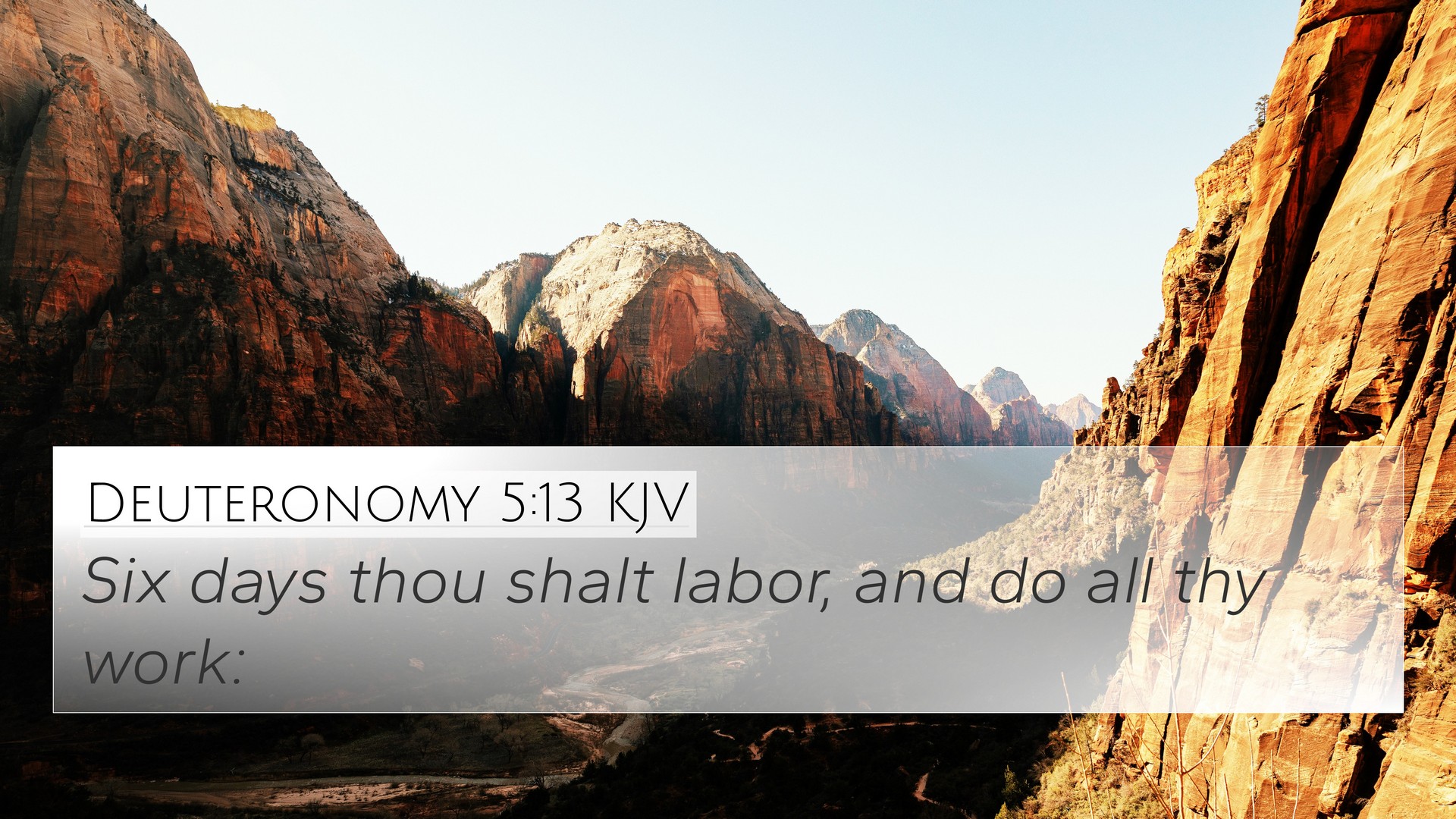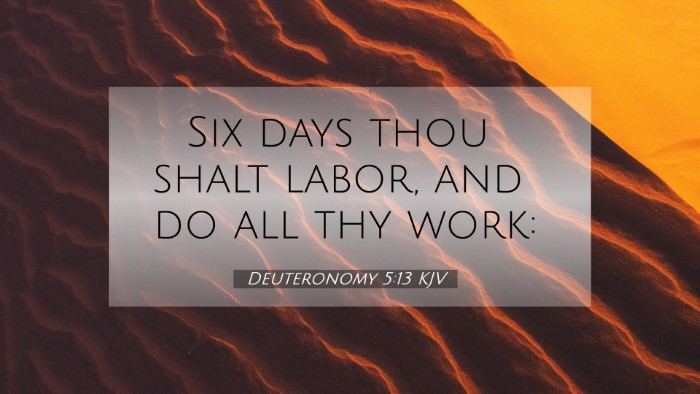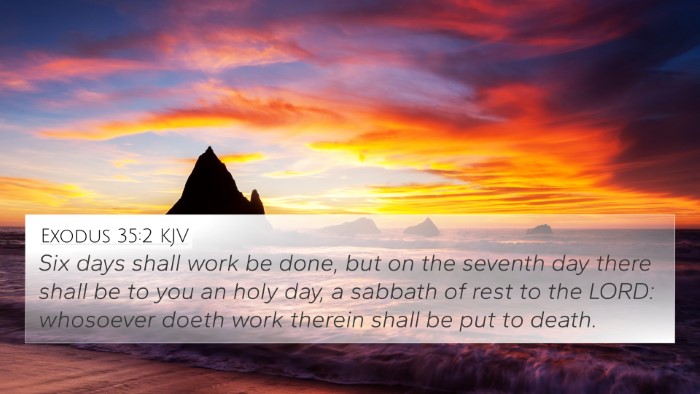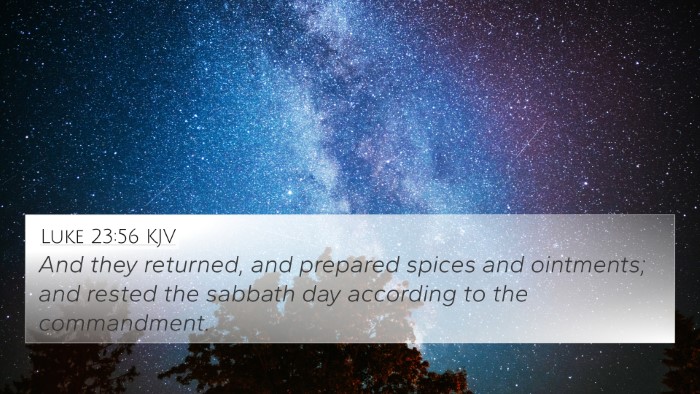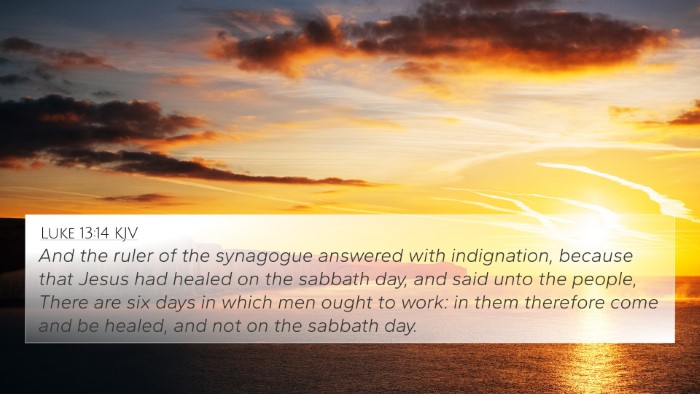The Meaning of Deuteronomy 5:13
Deuteronomy 5:13 (KJV): "Six days thou shalt labor, and do all thy work:"
Overview
This verse is part of the Ten Commandments, specifically pertaining to the Sabbath commandment. It emphasizes the importance of dedicating one day to rest while recognizing the necessity of labor over the other six days. This duality reflects the biblical principles of work and rest.
Commentary Insights
-
Matthew Henry:
Henry emphasizes the balance of work and rest as prescribed by God. The command to labor signifies not only physical work but also the ethical obligation of fulfilling one’s duties. He notes that the six days represent a time to engage in one’s labors productively.
-
Albert Barnes:
Barnes discusses the practical implications of this commandment in the life of a believer. He points out that the focus on labor indicates God’s acknowledgment of the human condition and the idea that work is a vital, sanctified part of life.
-
Adam Clarke:
Clarke elaborates on the Hebrew understanding of ‘labor,’ which conveys a sense of purposeful effort. He underlines that the command serves not merely as a restriction but as a guide for a fulfilling life that honors God.
Bible Verse Cross-References
This verse connects with other Scripture passages that explore themes of work, rest, and the Sabbath:
- Exodus 20:9-10: "Six days shalt thou labor, and do all thy work: But the seventh day is the sabbath of the Lord thy God."
- Genesis 2:2-3: "And on the seventh day God ended his work which he had made; and he rested on the seventh day from all his work which he had made."
- Colossians 3:23: "And whatsoever ye do, do it heartily, as to the Lord, and not unto men."
- Proverbs 14:23: "In all labor there is profit: but the talk of the lips tendeth only to penury."
- 1 Thessalonians 4:11: "And that ye study to be quiet, and to do your own business, and to work with your own hands, as we commanded you."
- Mark 2:27: "And he said unto them, The sabbath was made for man, and not man for the sabbath."
- Hebrews 4:9-10: "There remaineth therefore a rest to the people of God. For he that is entered into his rest, he also hath ceased from his own works, as God did from his."
Understanding Work and Rest
This commandment reinforces the themes of productivity and divine rest. It is essential to understand that in the biblical worldview, both work and rest are sacred. The work-week signifies our responsibilities, while the Sabbath is a time for spiritual replenishment, reflection, and communion with God.
Thematic Bible Verse Connections
Connections between Bible Verses: The interrelation of Deuteronomy 5:13 and its cross-references highlights the overarching biblical narration on work ethics and the intent behind rest. Numerous verses illustrate God’s plan for humanity to engage in meaningful work without neglecting spiritual health through rest.
As one explores the links between these verses, tools for Bible cross-referencing can help uncover the deeper theological implications and practical applications in daily life.
Practical Applications
This verse, along with its related passages, instructs modern readers on maintaining a healthy work-life balance, recognizing divine instructions for both labor and leisure as crucial for spiritual well-being.
Conclusion
Deuteronomy 5:13 serves as a vital reminder of God’s design for human life, urging believers to engage in diligent work while ensuring they honor the Sabbath. This verse, in conjunction with scripture cross-references, fosters a comprehensive understanding of divine principles that emphasize the importance of both labor and rest.
